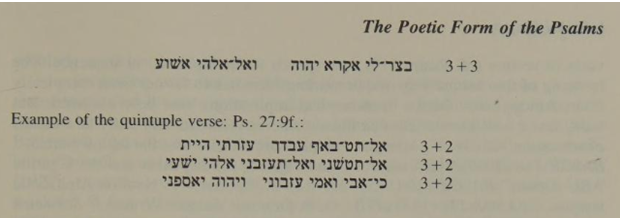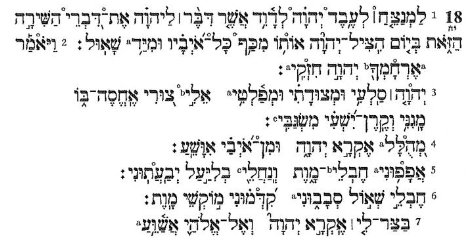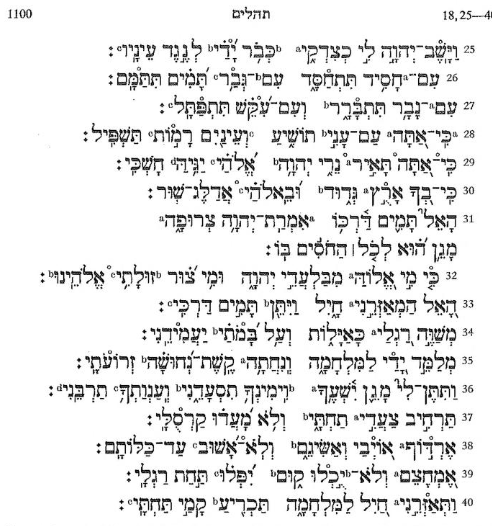Thanks for the question. I'm not poetically inclined, so to speak, but was intrigued by the question nonetheless. Was confused for a while because I kept trying to have it make sense by syllables in transliteration, as in English poetry. Didn't work.
Your quote appears to be from Psalms 1-59: A Commentary by Kraus, Hans-Joachim (1988).
I borrowed the book from archive.org for an hour. "The Poetic Form of the Psalms," p. 32 begins the explanation of his metrical system. The system applies to the Hebrew, not translations or transliteration syllables.


In Kraus' book, it also says, "In its meter, Psalms 18 almost throughout reveals the form of the double triple scheme...." Which prompted me to look at BHS. I'd noticed the 'gaps' in verses before, just never questioned their purpose. Perhaps those 'gaps' denote poetry meters which, for space-saving reasons, were separated by gaps instead of being placed on separate lines.
Having no real knowledge of this topic, that's as far as I can take this. If anyone can confirm or correct my conclusion, I'd appreciate it.
The images below are from BHS of Psalms 18 on archive.org - https://archive.org/details/biblia-hebraica-stuttgartensia-bhs/Biblia%20Hebraica%20Stuttgartensia%20BHS/page/n1131/mode/2up





